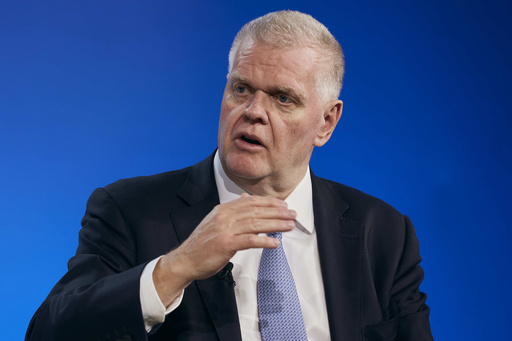HSBC, Europe’s largest bank, says that CEO Noel Quinn plans to retire after serving nearly five years in the post.
“After an intense five years, it is now the right time for me to get a better balance between my personal and business life. I intend to pursue a portfolio career going forward,” Quinn said in a statement on Tuesday.
Quinn has worked at HSBC since 1987. As CEO, he helped with the sale of its Canada and Argentina operations and oversaw the bank’s strongest returns in more than a decade.
In 2021, HSBC said that it was closing its U.S. retail banking business in order to refocus its efforts on wealth management. London-based HSBC is one of the world’s biggest banks, but its focus is primarily in Hong Kong, where it was founded, and elsewhere in Asia, and in the U.K. and Europe.
“Noel has had a long and distinguished 37-year career at the Bank and we are very grateful for his significant contribution to the Group over many years,” Chairman Mark Tucker said. “He has driven both our transformation strategy and created a simpler, more focused business that delivers higher returns. The bank is in a strong position as it enters the next phase of development and growth.”
HSBC said that its board has started the formal process of looking for Quinn’s successor and is looking at both internal and external candidates. Quinn will continue in the CEO role during the search process and assist with the transition.
In January, U.K. regulators announced that HSBC was fined 57.4 million pounds ($72.8 million) for failing to adequately protect customer deposits in the event that the bank collapsed.
HSBC cooperated with the investigation and agreed to settle the case, the Prudential Regulation Authority said. Without this cooperation, the fine would have been 96.5 million pounds ($122.4 million).
The bank said at the time that it was “pleased” to resolve the matter.
Shares of HSBC gained more than 3% before the market open.
This website uses cookies so that we can provide you with the best user experience possible. Cookie information is stored in your browser and performs functions such as recognising you when you return to our website and helping our team to understand which sections of the website you find most interesting and useful.
